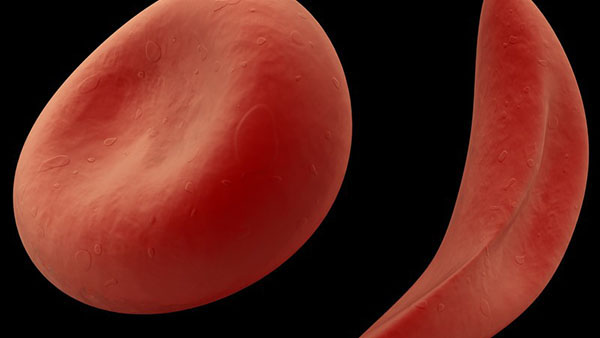By Heather Gordon
PRIDE Guest Columnist
 The current Opioids crisis has recently been a frequent and scary headline in our national papers and newsfeeds and is of concern to many Canadians, and rightly so. In Ontario an average of two people per day die from Opioid overdose (Carter, 2016).
The current Opioids crisis has recently been a frequent and scary headline in our national papers and newsfeeds and is of concern to many Canadians, and rightly so. In Ontario an average of two people per day die from Opioid overdose (Carter, 2016).
As a social worker supporting patients with Sickle Cell Disease (SCD), I am worried whether the upcoming guidelines and legislative changes will adversely affect my clients. Individuals living with SCD have very unique needs and some may quite appropriately require opioid dosages that surpass the generally recommended limits.
Ontario will soon be implementing its first comprehensive Opioid strategy to help prevent Opioid addiction and overdose (“Ontario Taking Action to Prevent Opioid Abuse,” n.d.). I hope that the present SCD guidelines set out by The Canadian Haemoglobinopathy Association and other expert organizations will be taken into consideration of policy makers and result in a more thoughtful, balanced and nuanced approach to this crisis.
Sickle Cell Disease is a lifelong genetic disorder which is characterized by a rapid breakdown of the blood cell, resulting in anemia, and also blockage of blood flow through blood vessels, which can lead to episodes of severe pain, as well as organ damage. Opioids are one of several classes of analgesia medications used to treat their pain.
This inherited genetic blood disorder affects the descendants and recent immigrants, mostly from the Caribbean, Africa, the Mediterranean and Middle Eastern countries.
This present climate of concern around Opioid abuse and misuse can reinforce, and magnifies innate prejudice, biases and stereotypes which can seep into the delivery of medical care to those from visible minorities.
The anticipation of the upcoming guidelines is very anxiety-provoking for patients who have had negative experiences in emergency room departments or feel their pain hasn’t been managed effectively.
Sickle Cell pain can be severe enough to be a contributing factor in death.(Parfrey, Moore, & Hutchins, 1985).The acute, recurrent painful crisis is unpredictable and can be triggered by known and unknown risk factors that result in serious complications, including: acute chest syndrome, multi-organ failure, and sudden death.
The Consensus on the care of SCD patients stated: “Inappropriate pain management will lead to suffering from sub-optimal treatment or potentially life threatening complications” (CanHaem, 2015, p. 22).
I want to ensure the patient’s voices are heard during this deliberative process to create strategies to prevent and address possible impediments to adequate pain management.
When patients seek care, unfamiliarity with their medical condition by healthcare providers can lead to poor pain management. The concerns of patients with Sickle Cell Disease would be alleviated if they are confident their disease is given careful consideration given the severity of their pain.
As a social worker I see the complex interplay of poverty, race, education and their blood disorder (which is a multi-system disorder). I also see the majority of patients in this disease group, belonging to a visible minority group that is, often-times, stigmatized and face a lot of stereotypes due to the above mentioned factors and the lack of knowledge about the disease.
There is a direct link with stress and Sickle Cell pain. Psychosocial stress is one of the precipitating factors of pain; therefore, in too many situations, factors can further increase their pain. They do not need this extra layer of stress.
We need to increase our understanding so we can provide appropriate pain management to patients with SCD, who are in pain and require Opioids. A collaborative approach is needed to help support these patients in pain.
I am hoping that there will be a positive end to the change and that Sickle Cell patients will have safe and appropriate access to Opioids. This enables them to safely and effectively treat acute and chronic pain, thereby helping them lead full and productive lives as members of our society. Let’s help ease the pain and stress.
UHN’s Red Blood Cell Disorders (RBCD) Program is Canada’s largest Comprehensive Sickle Cell clinic for adult patients. We are taking practical measures to ensure opioids are used safely and effectively:
- Patient education
- Referrals to and shared care with comprehensive pain clinics
- Assessing for the appropriateness of and applying non-opiate therapies for pain control (e.g. gabapentin, SSRI, SNRI, MAO inhibitors, etc.)
- Mental health referral
- Psycho-social support by the social worker
- Use of prescription monitoring system
- Mitigating co-prescribers or use of multiple pharmacy by using a contract.
References:
Canadian Haemoglobinopathy Association (2015). Consensus Statement on the Care of Patients with Sickle Cell Disease in Canada. Version 2.0. Ottawa.
Carter, A. M. and A. (2016, September 23). Ontario “slow to respond” to growing opioid overdose crisis: experts | Globalnews.ca. Retrieved November 25, 2016, from globalnews.ca/news/2959852/ontario-slow-to-respond-to-growing-opioid-overdose-crisis-experts/
Ontario Taking Action to Prevent Opioid Abuse. (n.d.). Retrieved November 25, 2016, from news.ontario.ca/mohltc/en/2016/10/ontario-taking-action-to-prevent-opioid-abuse.html
Parfrey, N. A., Moore, W., & Hutchins, G. M. (1985). Is pain crisis a cause of death in sickle cell disease? American Journal of Clinical Pathology, 84(2), 209–212.
Heather Gordon, BA, BSW, MSW, RSW is a Social Worker with the Red Blood Cell Disorders Program & Medical Surgical Day Unit at UHN — Toronto General Hospital.
 Pride News Canada's Leader In African Canadian & Caribbean News, Views & Lifestyle
Pride News Canada's Leader In African Canadian & Caribbean News, Views & Lifestyle






Very interesting Article and well written by the Social Worker Heather Gordon. Yes, it’s thought provoking and a matter of concern for the needy patients.